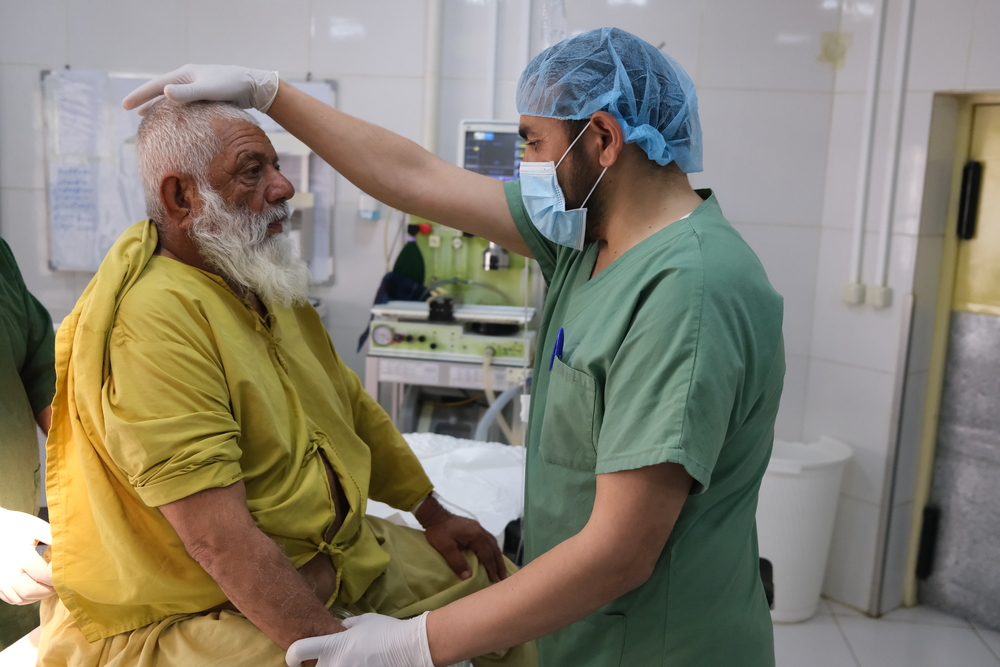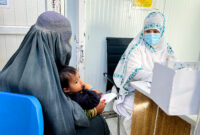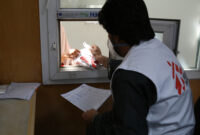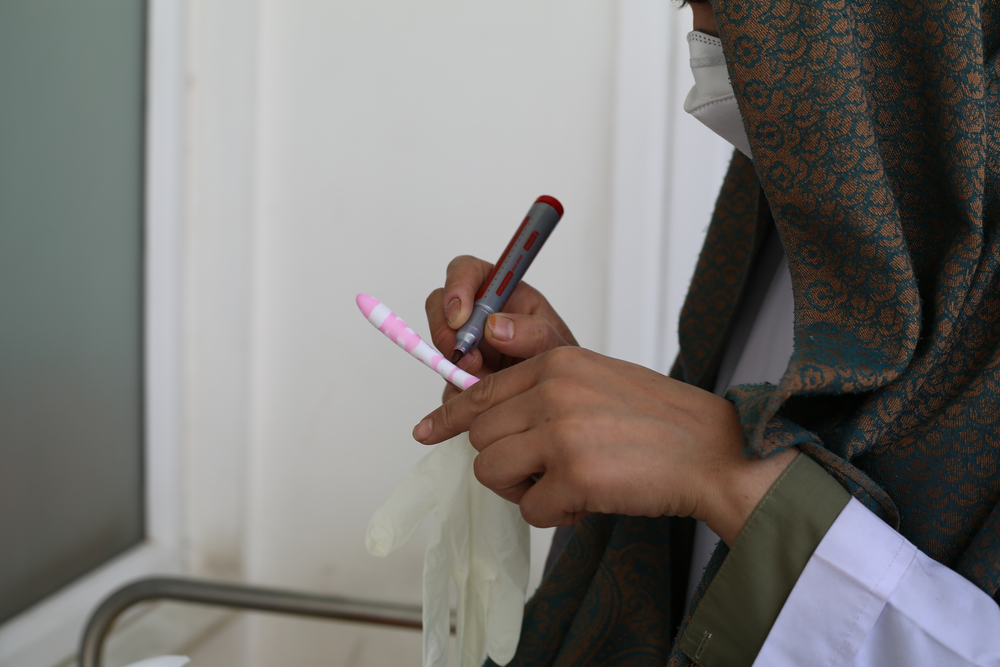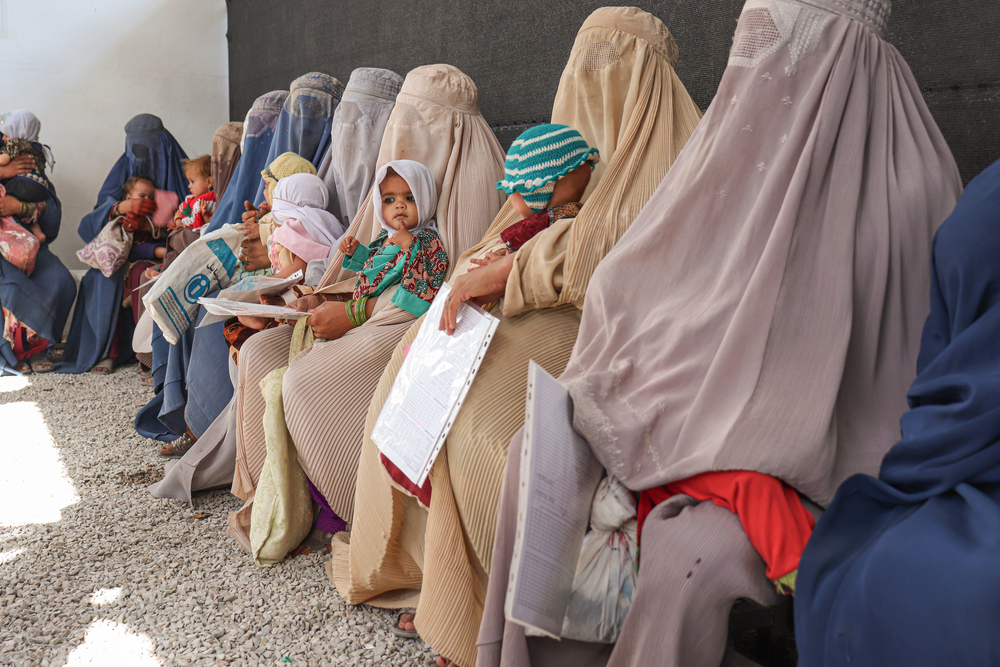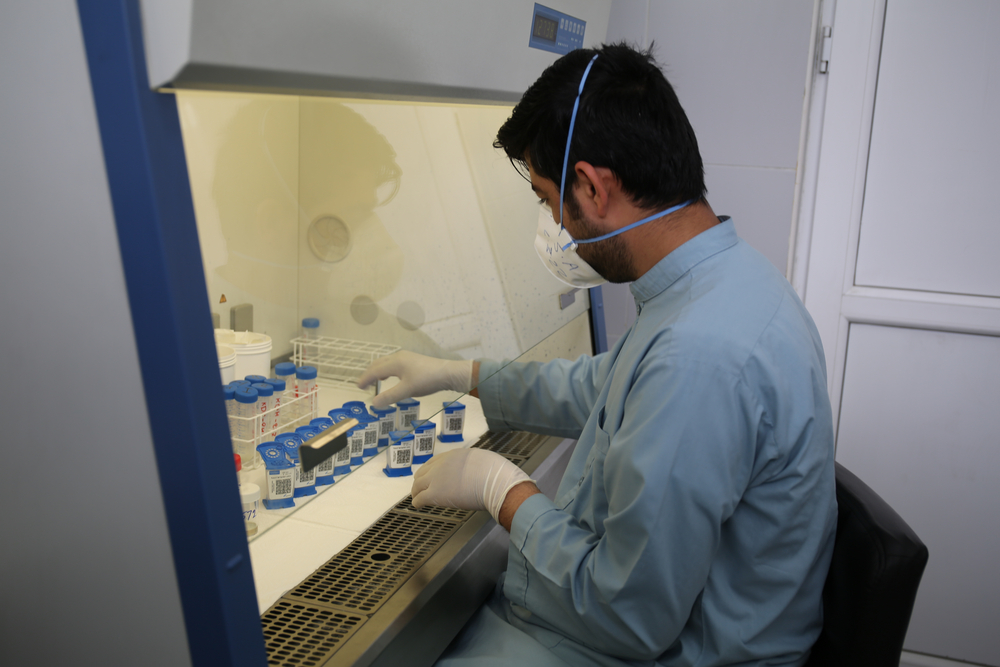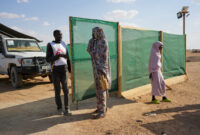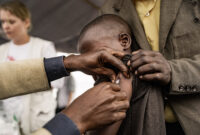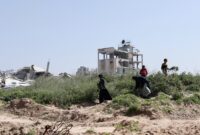Afghanistan: Deprived of healthcare by poverty, restrictions and a disfunctional system
A dysfunctional health system, widespread poverty, and increased restrictions placed on women are at the heart of the current humanitarian crisis in Afghanistan, according to a new report published by Doctors Without Borders/Médecins Sans Frontières (MSF). Policymakers, donors and local authorities must urgently focus on strengthening primary medical care at district levels to improve people’s access to healthcare; international actors must address the issues contributing to the economic crisis; and women must be allowed to pursue further education and employment opportunities, to raise income for their families and to ensure there are sufficient female health workers in the country to meet the needs.
In MSF’s latest report on access to healthcare in Afghanistan, Persistent barriers to access healthcare in Afghanistan: The ripple effects of a protracted crisis and a staggering economic situation, 91.2 per cent of respondents told of a decrease in their income last year, which is 15 per cent more than in 2021. And a staggering 95 per cent of them said they had faced difficulties in affording food over the past 12 months, primarily as a result of rising unemployment and stagnant salaries accompanied by increasing prices, especially for basic food items. This comes as the sanctions imposed by the international community continue to cripple the economy and CAD$9.42 billion of the Afghan central bank’s assets remain frozen abroad.
“Sometimes mothers are so malnourished they can’t produce milk for their children. We see them putting tea in bottles to give to new-born babies of only seven or eight days, which can be very dangerous,” says Hadia, a member of MSF’s medical staff in Herat Regional Hospital.
Many Afghans have been forced to adopt negative coping mechanisms amidst their difficult economic situation. Among all respondents surveyed in the report, 88 per cent said they either delayed, suspended or decided not to seek medical care in 2022, an increase of 14.3 per cent on the year before. Marieh, after arriving at the MSF-supported Herat Regional Hospital explained: “When my child was sick, we went to one of the private clinics and received a prescription for drugs that cost 1,000 AFG [around CAD$16]. They didn’t help. We also tried a nearby public hospital, but doctors there gave us only half a tablet, not all the medication [we needed] … Now we’re here. My baby is worse, and I owe a lot of money we borrowed for transport.”
“One of the main problems in Afghanistan is that peripheral health facilities are neither well-equipped, adequately resourced nor properly staffed. This means people in rural areas need to travel vast distances for quality treatment, even though they often cannot afford such journeys without plunging themselves into debt,” says Filipe Ribeiro, MSF’s Country Representative in Afghanistan. “Hopes that the end of the war would significantly reduce obstacles to accessing healthcare were dashed by new barriers and fears. The journey to hospitals may be less dangerous after the war, but it certainly became more difficult to afford.”
More than 60 per cent of the surveyed respondents said women already face more significant obstacles when trying to access healthcare in comparison to men, mostly in terms of movement restrictions related to the long-standing socio-cultural practice known as the mahram. This requirement obliges women leaving home to be accompanied by a male relative, which can impede their ability to reach a hospital – whether as patients, caretakers or humanitarian workers – in several ways, for example when no male relative is available to accompany them, or when a journey which is already hard to afford for one person becomes unaffordable when paying for two.

In December 2022, the government of Afghanistan announced its decision to bar women from employment in non-governmental organisations and from university-level education. This will likely worsen women’s access to healthcare. “It is already difficult in some of our projects to fill the necessary positions, including gynaecologists. If women are not allowed to study, where will the next generation of doctors, midwifes and nurses come from? MSF teams in our maternity projects in Afghanistan assisted with more than 42,000 deliveries last year and over 8,000 of them were accompanied by direct obstetric complications. Prohibiting women from learning and working will put the lives of mothers, and the lives of their children, at a greater risk,” concludes Ribeiro
*The names of Afghans quoted in the article have been changed to protect their identity.
The report Persistent barriers to access health care in Afghanistan: The ripple effects of a protracted crisis and a staggering economic situation brings together medical data, interviews and questionnaires from patients, their caretakers and staff in MSF’s projects in Helmand, Herat, Kandahar Khost and Kabul. MSF also documented barriers to access healthcare in Afghanistan in reports published in 2014, 2020 and 2021.
